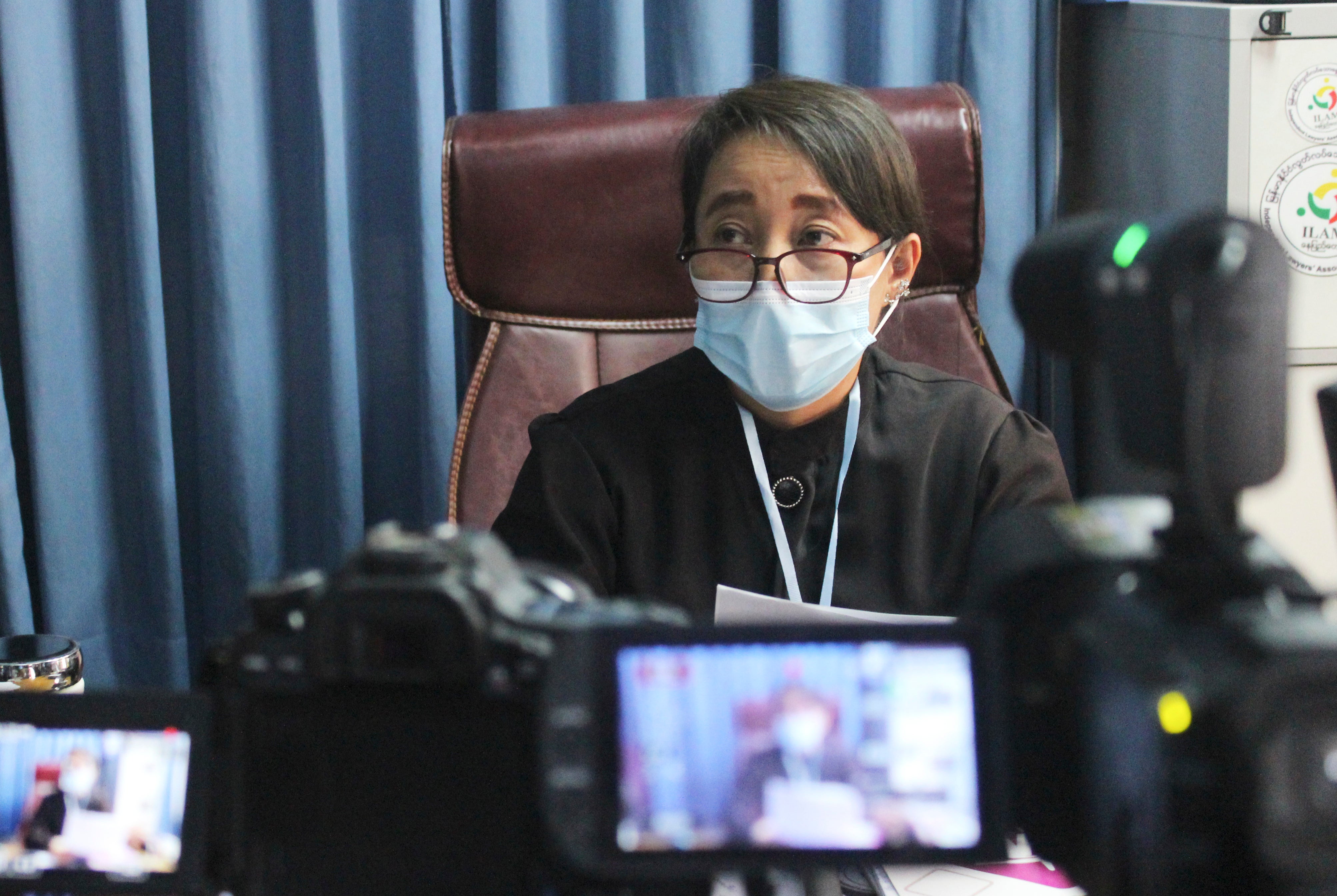Suu Kyi's lawyers fight over evidence in Myanmar trial
Lawyers for ousted Myanmar leader Aung San Suu Kyi have argued strongly against the introduction of evidence by prosecutors against her on a sedition charge, saying it did not follow established judicial procedures

Your support helps us to tell the story
From reproductive rights to climate change to Big Tech, The Independent is on the ground when the story is developing. Whether it's investigating the financials of Elon Musk's pro-Trump PAC or producing our latest documentary, 'The A Word', which shines a light on the American women fighting for reproductive rights, we know how important it is to parse out the facts from the messaging.
At such a critical moment in US history, we need reporters on the ground. Your donation allows us to keep sending journalists to speak to both sides of the story.
The Independent is trusted by Americans across the entire political spectrum. And unlike many other quality news outlets, we choose not to lock Americans out of our reporting and analysis with paywalls. We believe quality journalism should be available to everyone, paid for by those who can afford it.
Your support makes all the difference.Lawyers for ousted Myanmar leader Aung San Suu Kyi argued strongly Tuesday against the introduction of evidence by prosecutors against her on a sedition charge, saying it did not follow established judicial procedures.
Suu Kyi is under detention and is being tried on several charges, including an allegation that she illegally imported walkie-talkies for her bodyguards’ use and used the radios without a license, and violated COVID-19 pandemic restrictions on two occasions during the 2020 election campaign.
She went on trial on June 14 in a closed court in the capital, Naypyitaw, in proceedings that the military-installed government is widely seen as using to discredit her and consolidate its control.
The military took power in February after ousting Suu Kyi’s elected government and arresting her and other top officials in her government and National League for Democracy party, which was about to begin a second five-year term in office after a landslide election victory last November.
The sedition charge, which is sometimes called incitement, provides for up to two years’ imprisonment for anyone found guilty of causing fear or alarm that could provoke an offense against the state or public tranquility. It has been criticized as a catch-all statute used for political repression.
Suu Kyi’s lawyers last month objected to the introduction by the prosecution of two statements that were posted on the Facebook page of Suu Kyi’s party after she and President Win Myint had already been arrested by the military on Feb. 1. Win Myint is Suu Kyi’s co-defendant under the sedition charge.
One of the statements, issued Feb. 13, accused the military-installed government of trying to restrict the people’s right to freedom of expression and the internet, and declared that all the orders and laws issued by that government were illegal.
Suu Kyi’s lawyers said they contended the statements should not be admissible because neither of the defendants signed them.
The special court that is conducting the trial did not sustain the defense objection but said it would suspend testimony on the point while the defense appeals to a higher court.
On Monday, after a district court rejected the defense appeal without a hearing, Suu Kyi’s lawyers said they would appeal to a region-level court, and if necessary to the Supreme Court
The lawyers objected again Tuesday when the plaintiff, a Naypyitaw bureaucrat, introduced a piece of evidence that had not been formally listed before testimony began, said Min Min Soe, a member of the defense team. The court allowed the evidence, a list of Central Executive Committee members of Suu Kyi’s party and its patrons.
Suu Kyi faces additional charges that have yet to be tried, among them allegedly accepting bribes, which carries a penalty of up to 15 years in prison, and violating the Official Secrets Act, which carries a maximum term of 14 years.
The army has said it will hold new polls within two years of its takeover, but a conviction on virtually charge any could result in Suu Kyi being banned from running, which many believe is the military’s goal.